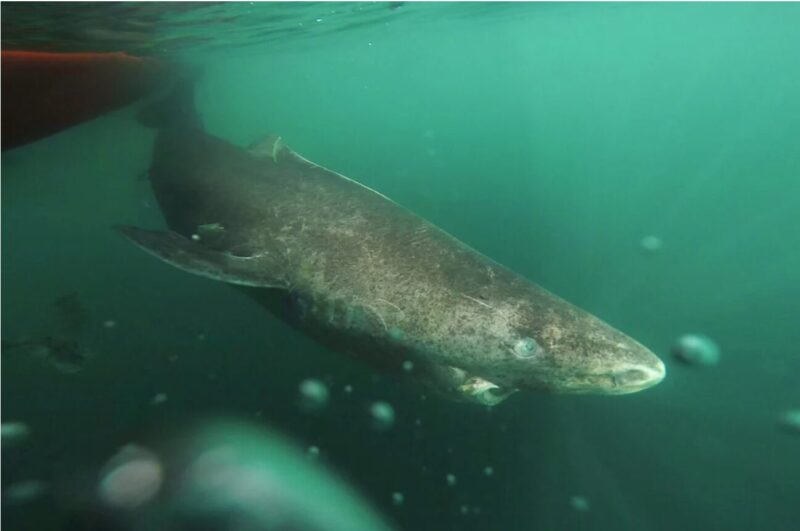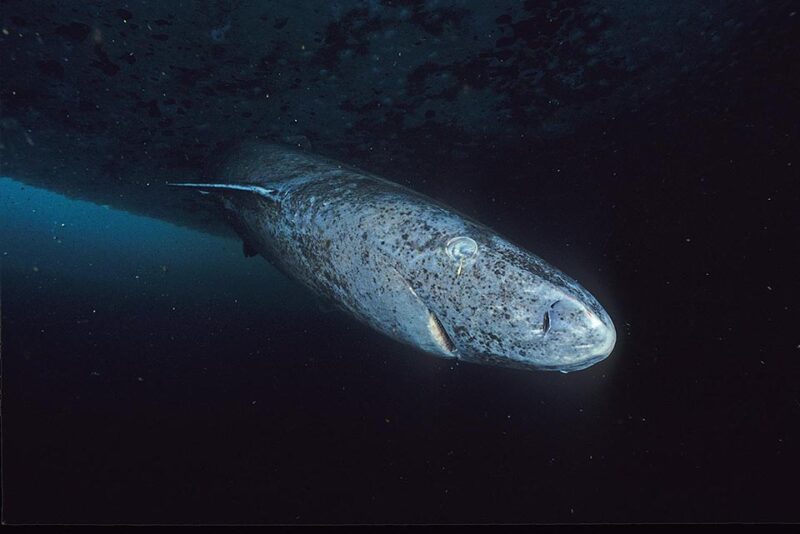We are always looking for ways to live longer. New research suggests that Greenland sharks might hold the key to human longevity.
Greenland sharks are the longest-living vertebrates on Earth. Most live at least 270 years, but some have survived for over 500 years. Touted as “one of nature’s least elegant inventions” by The New Yorker, Greenland sharks are admittedly not the cutest creatures. They have short snouts and gaping mouths. Parasites hang winsomely from their eyes.
At the same time, they are the only sharks that survive in the polar regions throughout the entire year. Living in such cold waters, the sharks move very little, usually less than three kilometers in an hour. Many thought this, combined with the cold environment, might be the reason for their longevity. A new study shows that this is not the case.
Instead, the shark’s Methuselah-like abilities hinge on its muscular metabolic activity. Its metabolism behaves completely differently from other animals. Rather than decreasing as the shark ages, its metabolism remains almost constant throughout its lifetime.

A Greenland shark in Uummannaq Fiord. Photo: Julius Nielsen
Steady metabolism
Researchers took muscle samples from several different sharks of different ages and analyzed the activity of different enzymes. Enzymes control most metabolic reactions. Over time, you would normally see some enzymes decrease in activity and others increase.
Instead, the activity level remained remarkably consistent. “This [fluctuations in enzyme activity] is all part of natural metabolism as aging causes it to fail and change over time,” lead researcher Ewan Camplisson told IFLScience. “The fact we don’t see this in the Greenland shark suggests they don’t show this traditional sign of aging.”
Instead, the shark’s enzyme activity changes with its environment. In warmer waters, its enzymes become much more active. Though this in itself is not a huge surprise –- enzymes tend to work faster at higher temperatures — it does show that its muscular metabolic activity is not an adaptation brought on by arctic waters.
As we get older, heart conditions become more common and more severe. Not so with Greenland sharks. Studying their hearts could help us learn more about our cardiovascular health.
This research also suggests the potential effect of climate change on such long-lived species. Some females take 150 years to become sexually mature. Such a near-eternity between generations makes it harder for sharks to adapt to environmental changes. In a fast-changing world, their slow-as-she-goes approach may no longer be an advantage.






